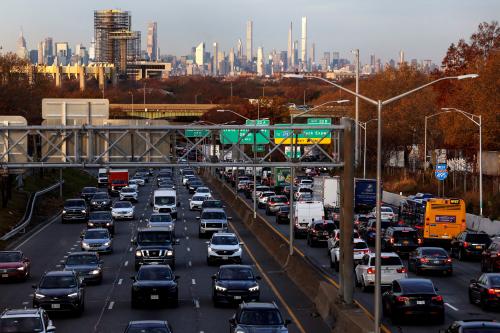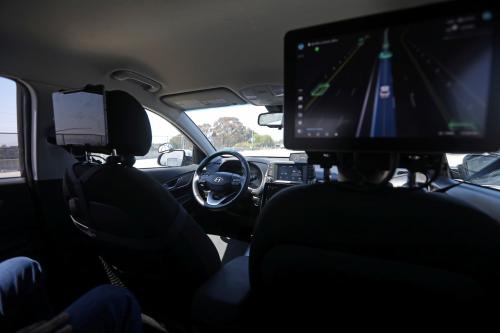

Washington, D.C. – The United States invests well over $300 billion each year to maintain and grow the country’s transportation network, with states having enormous authority to determine what projects get built, where, and by whom. Yet state agencies mostly lack the accountability processes to justify their own construction projects or support local governments who are closer to the constituents those projects serve.
Those are the central findings of a new report released today by the Brookings Institution. To measure state accountability, Brookings created a first-of-its-kind inventory of accountability policy and practices in all 50 states and Washington, D.C. That inventory was made public with the accompanying report.
The national inventory creates a new way to understand state-to-state gaps in planning, project selection, and public accountability. Some of the specific findings include:
“As a former mayor working with thousands of local leaders today, this report’s findings affirm how little transportation funding winds through the maze of state processes to the local level,” said Clarence E. Anthony, CEO and Executive Director of the National League of Cities. “We need to put the spotlight on improving the transportation funding process so that it is accountable and cost effective. Balancing federal investments across interstates and main streets will prioritize life-saving improvements and the big ideas that can transform how we move people and goods in our nation’s most productive economic epicenters.”
The authors recommend reforms at the federal and state levels, including requiring publishing justifications for all project selections and enhancing coordination and revenue sharing with localities. The report also includes over 100 positive examples from states, plus an online interactive summarizing many of those specific examples. Congress, state legislatures, and governors can use these recommendations and examples to inform a more contemporary approach to planning, construction, and accountability.
“America’s highway network is effectively built-out, but the country is mostly stuck with the same twentieth century approach to planning and project selection,” said Adie Tomer, Brookings senior fellow and lead author of the report. “Between our vehicle-fueled safety crisis, the high costs to drive, and roads being damaged by extreme weather, states can lead by modernizing their investment approaches.”

Darrell M. West, Yong Liu
June 16, 2025

Adie Tomer, Polly Trottenberg, Robert Puentes
June 4, 2025

Darrell M. West
May 20, 2025